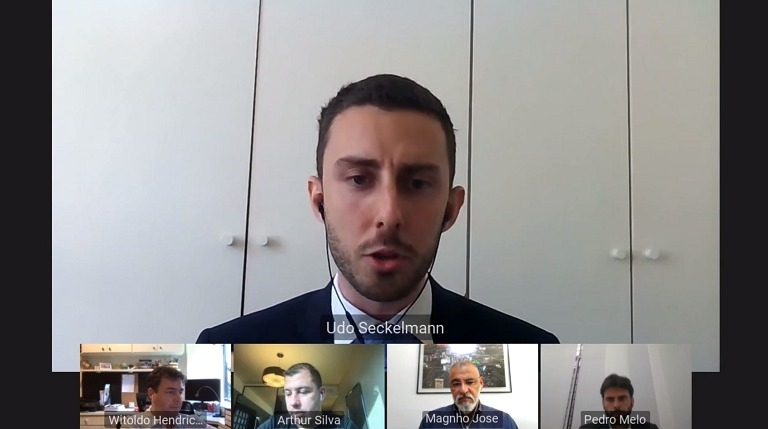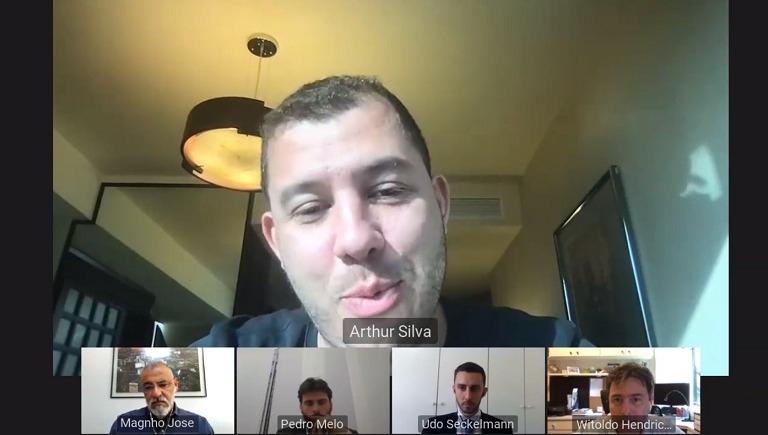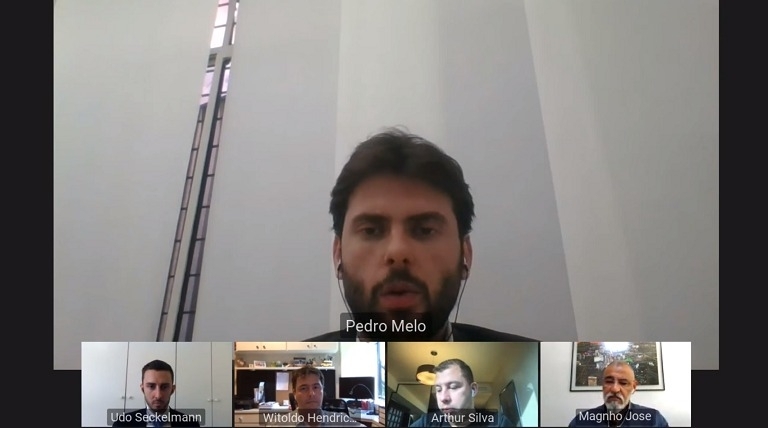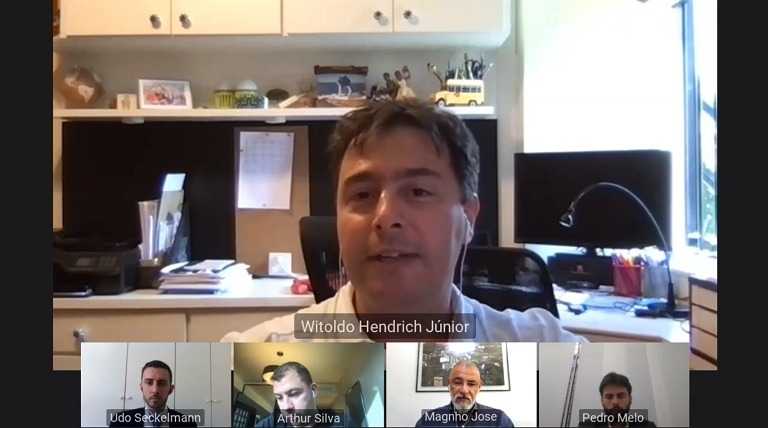

When greeting the speakers, Udo Seckelmann recalled that Brazil is experiencing a wave of sponsorship by sports betting companies in football clubs in the country, which began to grow exponentially from 2018 with the enactment of Law 13756, which created the activity in Brazil.
"With the legalization of this activity, the clubs felt comfortable legally to sign contracts with betting companies, which today total more than half of the football teams in series A and B of the Brazilian Championship," he says. According to him, although the activity is legalized, there is still no ready regulation, which is being prepared by SECAP, from the Ministry of Economy. Thus, he asked Wiltoldo Hendrich if there is something in the probable federal regulation of SECAP that contributes to the growth of sponsorship of bookmakers to Brazilian football clubs.

The Online IPS executive said the sector is stabilized and the regulation will provide legal certainty for those already in the field of sports betting. “I include both operators and media outlets, football teams and TV stations. What could ruin the market would be if the government, in the regulations, says that betting ads could only run after 9:00 pm. In other words, much more than assisting, what we expect from federal regulation is that it will not get in the way,” he analyzed.
Udo commented that an extremely regulated sector could be put in a cast. “With the increase in the participation of bookmakers in clubs, the activity ends up being more present in the daily life of Brazilians. But we know that there are harms, such as pathological gambling and betting by minors. For this reason, England and Spain, countries with mature regulations for the sector, are looking for actions to stop the advancement of advertising by betting companies in football teams.”
Arthur Silva, from Sportsbet.io, who has a successful case with two-time Brazilian champion Flamengo, said that supporting the club is important to finance the team and ensure success. For him, “it is very important the synergy between the two industries, the consumption of sports and betting, which is nothing more than the next level of support. The club is able to engage its fans more when it adheres to a sports betting product, which does not exist without football, especially in Brazil, a major consumer of the sport. The club is where the bookmaker wants to be. A club with a well-developed base has exceptional value and the opportunity lies in transforming this fan relationship, whether recreational or hardcore, to be a consumer of sports betting. And in Brazil this is natural, as there are already other products, such as the sports lottery.” Regarding the case cited, Arthur said that "it was a success precisely because we managed to engage Flamengo's base, and that is the way."

In this context of synergy, Udo recalled that before, most of the team's master sponsors were banks, supermarkets and other activities that have nothing to do with football. “When a new and legalized sector arrives, about to be regulated, the potential for partnership is immense, since the target audience of betting companies is the Brazilian fan. Exploring the issue of brands is beneficial for both the operator and the club,” he said.
Pedro Melo, of Atlético Mineiro, said that the relationship with bookmaker Betano started in August last year and that the company showed a lot of interest in joining a club with professional management and an eye on the future. “It was the right moment, as it was marrying Atlético's new project. We made presentations and tried to understand their project well and since January we have been with Betano, which has been very positive,” he said. In his assessment, there is a tendency for more bookmakers to arrive to support other clubs.
With the regulation, Pedro said that at the end of next year the club will have its own arena finalized, it is in Atlético's plans to keep a physical betting area in the stadium. "With our partnership with Betano, we will negotiate with them such a possibility," he said.

Arthur endorsed Pedro's words and commented that, as never before, bookmakers will have an infinite number of possibilities. "And this will give them visibility when they are present in spaces on of big clubs jerseys, which will also give a lot of confidence to bettors."
The Sportsbet.io executive said that “the more a club is well structured in terms of its data and that of its members, today when offline is not yet a reality, the digital presence is very important and engages fans and generates value for the operator. It is essential to improve the betting experience that they have advantages, such as a special quote or a free bet. This will further improve the relationship between the club and the bookmaker.”
Pedro stated that the club has already scheduled several activations as a way to engage Atlético fans. "We have nothing fully planned for our stadium, but in the coming months, with the regulations, we will see what can be done with the bookmaker," he said.

Regarding the licensing model for bookmakers, Witoldo commented that limiting the number of companies “will generate an impact. On the one hand, we have many stakeholders and on the other, a limitation. This imbalance can create problems. I believe in a wider free competition and people will migrate to serious and licensed bookmakers. On the market, I do not see any sense for the government to limit the number of licenses. The quality of the service provided by ten companies will be lower than that provided in a market with 100 firms,” he attested, recalling that “we had a ready-made model between a bookmaker and a club, which I cannot disclose who, but I was dealing justly creating a physical betting environment at the stadium. Returning to post-pandemic normality, we will deal with this issue again,” he said.
Source: GMB